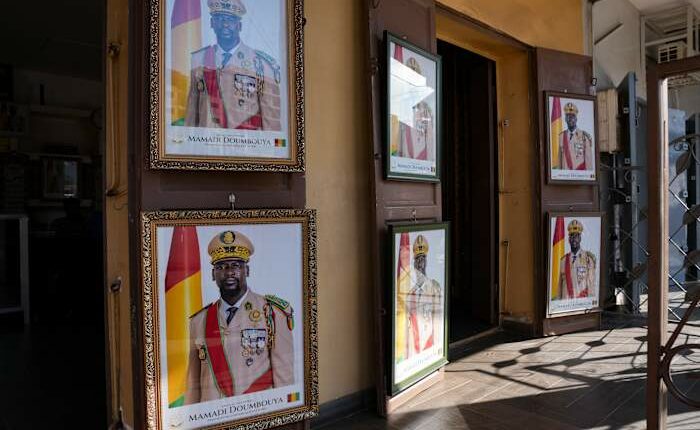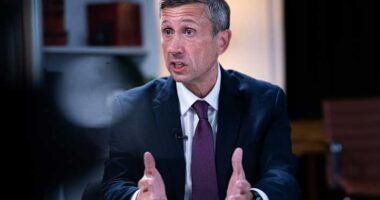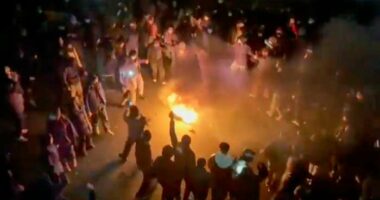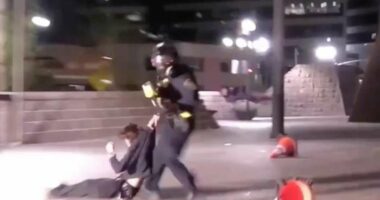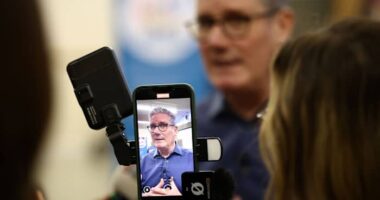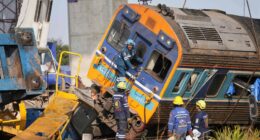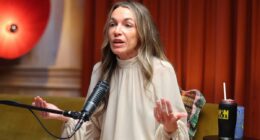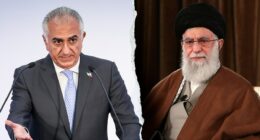Share this @internewscast.com
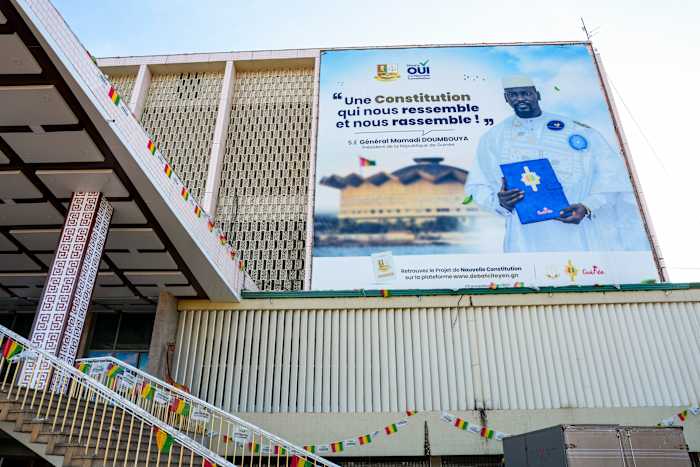
CONAKRY – As the campaigning in Guinea’s capital wrapped up on Thursday, there was a flurry of activity leading up to a referendum that may permit the coup leader to run for the presidency.
The city was alive with events such as Quran readings, reggae concerts, and prayers backing Col. Mamadi Doumbouya, the military head who assumed control three years prior. Conakry’s public and private buildings showcased numerous campaign billboards. Streets were blocked by trucks laden with supporters donning T-shirts and boubous—West Africa’s traditional flowing attire—bearing Doumbouya’s image.
Only one thing was missing: the opposition. All the campaign billboards and events urge people to vote in one way: Yes.
This Sunday, voters in this coastal West African nation will give their verdict on a proposed constitution, crucial for transitioning from military to civilian leadership. Campaigning is prohibited on the days of Friday and Saturday. A presidential election is anticipated in December.
There are 6.7 million eligible voters, and the referendum needs a voter turnout of at least 50% to pass.
Junta leader is the central figure of the campaign
Guinea joins a list of West African nations like Mali, Niger, and Burkina Faso, where military forces have seized control, postponing civilian governance. In 2021, Doumbouya overthrew President Alpha Conde, claiming his actions were necessary to save the nation from chaos and condemning the former regime for unmet promises.
Despite abundant natural reserves, more than half of Guinea’s 15 million residents face “unprecedented levels of poverty and food insecurity,” according to the World Food Program.
While Doumbouya initially declared he wouldn’t pursue the presidency, the proposed constitution enables junta members to contest elections and stretches the presidential term from 5 to 7 years, with the possibility of two renewals. It also establishes a Senate, wherein the president would appoint one-third of the members.
Although Doumbouya has not spoken publicly about whether he would run in December’s election, he remains the main figure of the referendum campaign.
At a recent event in a central neighborhood of Conakry, residents dressed in their best clothes and Doumbouya T-shirts were swaying to songs praising the military leader as “the new sun which shines over Guinea.”
Kadiatou Diaby, a merchant selling spicy Guinean pepper in Conakry’s market, said she was motivated by Doumbouya himself to vote in favor of the new constitution. During the rally, she made an impassioned speech convincing the others to do the same.
“I won’t say I didn’t vote before, but my heart wasn’t really in it. I really trust him. I’m going to vote, and my children are also going to vote,” she said.
Mohamed Lamine Camara, the head of the neighborhood council who hosted the rally and provided refreshments, said that no one has asked to organize any events against the new constitution. He said he was in favor of the draft and was telling residents to vote for it, but had not read the part which allows Doumbouya to stand in the presidential election.
Exclusion of the opposition voices
Fanta Conte, a member of Guinea’s National Transition Council, said that the referendum was not about Doumbouya, but about the new constitution, which would give more power to the legislative through the creation of the Senate.
“Right now, it’s not the presidential election campaign, it’s the referendum campaign,” she said. “So right now we’re not talking politics.”
But critics denounced the referendum as a power grab.
Since coming to power, the military junta has been tightening its grip on the independent media and the opposition, according to rights organizations. Human Rights Watch accused the military regime of disappearing its opponents and silencing critical media voices.
Social networks and private radio stations have been cut off, information sites have been interrupted or suspended for several months without explanation, and journalists have faced attacks and arrests, according to Reporters Without Borders. Some critical print newspapers are still being published, but literacy levels in Guinea are low.
The referendum is organized by a new body, the Directorate General of Elections, which will oversee the vote count and whose two heads were elected by Doumbouya.
The military regime dissolved more than 50 political parties last year in a move it claimed was to “clean up the political chessboard.” Weeks before the referendum, it suspended the three main opposition parties, making it impossible for them to organize rallies. More than half of the population cannot read or write, which means they only get information about the new constitution from the military government.
Opposition politicians have called for a boycott of the referendum. Cellou Dalein Diallo, an exiled opposition leader, called the referendum “a masquerade” which is “destined to legitimize a coup d’etat.”
Copyright 2025 The Associated Press. All rights reserved. This material may not be published, broadcast, rewritten or redistributed without permission.
